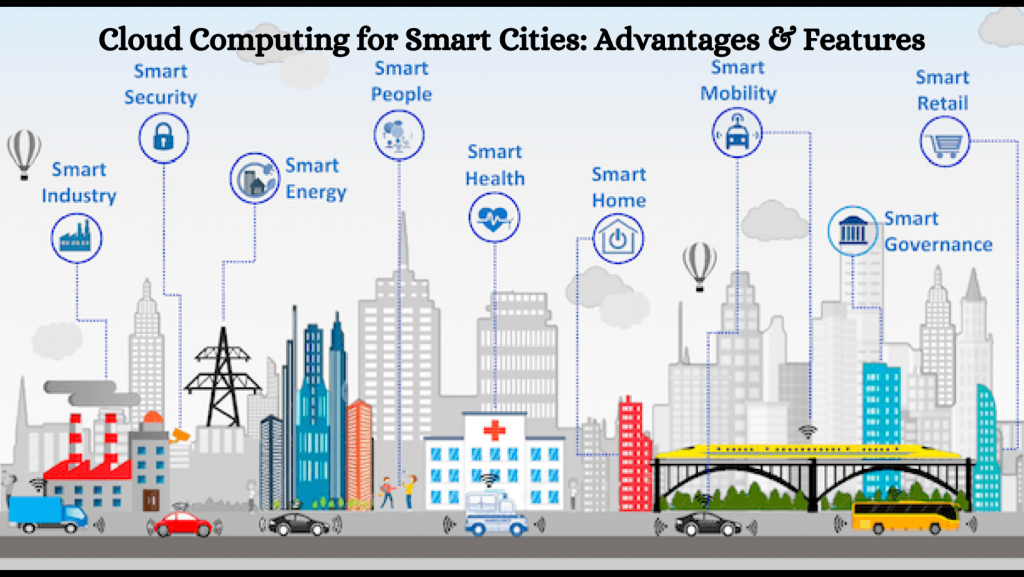June 19, 2023
Artificial Intelligence (AI), cloud computing, edge computing, embedded systems, Fifth Industrial Revolution, Five layer architecture, Home Automation, Industry 5.0, internet of medical things, Internet of Things, iomt, IoT, IoT Devices, Smart City
No comments
Cloud Computing for Smart Cities: Advantages & Features
Cloud computing offers several advantages and features that make it well-suited for supporting smart cities:
- Scalability: Cloud computing provides the ability to scale resources up or down based on demand. Smart cities generate massive amounts of data from various sources, such as sensors, devices, and systems. The scalability of cloud computing allows cities to handle the increased data volume efficiently and accommodate the growing needs of their smart city applications.
- Cost Efficiency: Cloud computing eliminates the need for cities to invest in and maintain costly on-premises infrastructure. They can leverage cloud services on a pay-as-you-go model, where they only pay for the resources and services they consume. This cost-efficient approach allows cities to optimize their budget allocation and invest in other essential areas.
- Flexibility and Agility: Cloud computing enables smart cities to quickly deploy and scale their applications and services. It provides a flexible and agile environment where new services can be developed and deployed rapidly, allowing cities to adapt to changing requirements and technologies effectively.
- Data Storage and Processing: Cloud computing offers vast storage capabilities and powerful processing capabilities. This allows smart cities to store and process large volumes of data generated by sensors, devices, and systems in a centralized and secure manner. Cloud-based analytics tools and machine learning algorithms can be applied to gain insights and derive valuable information from the data.
- Reliability and Redundancy: Cloud providers typically offer high levels of reliability and redundancy by distributing data and applications across multiple data centers. This ensures that smart city services and applications remain available even in the event of hardware failures or natural disasters, improving the overall reliability and resilience of the smart city infrastructure.
- Security and Privacy: Cloud providers invest heavily in security measures to protect data and applications stored in their infrastructure. They employ advanced security technologies, encryption, access controls, and compliance frameworks to ensure the confidentiality, integrity, and availability of data. Cloud computing also helps smart cities comply with privacy regulations by providing tools and services to manage data privacy and consent.
By leveraging cloud computing, smart cities can harness the power of scalable and cost-effective infrastructure, store and process massive amounts of data, deploy applications rapidly, and enhance security and privacy measures. These advantages contribute to the efficient and effective functioning of smart city initiatives, enabling cities to deliver innovative services and improve the quality of life for their residents.










Leave a Reply